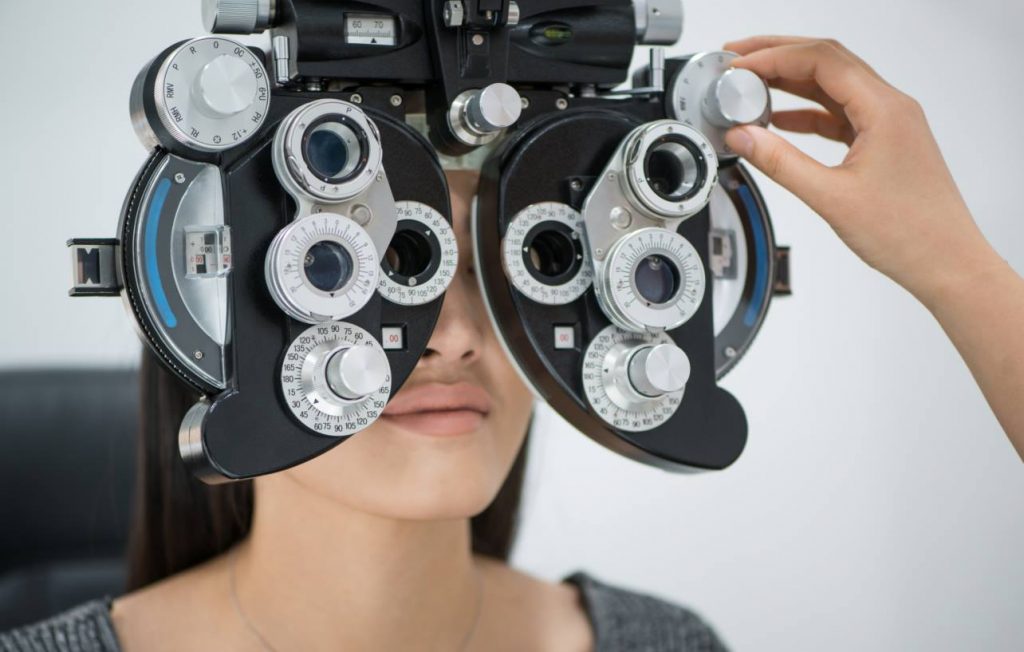
The eyes serve as more than just a portal to one's soul; they also provide valuable insights into one's overall well-being and can serve as indicators of potentially serious ailments such as diabetes or high cholesterol. By familiarizing oneself with the appropriate signs, most of these symptoms can be observed firsthand.
Natasha Herz, M.D., a clinical spokesperson for the American Academy of Ophthalmology, has compiled a list of 12 eye-related symptoms and their potential implications on one's health.
If you've noticed you cry more often without any reason, it could be due to a blocked tear duct. This condition can cause your eyes to become watery and irritated if your tears aren't draining properly. While physical or emotional trauma can cause excessive crying, a blocked tear duct can also be the culprit. It's crucial to have an eye doctor examine you to rule out any underlying causes, such as brain injuries, tumors, or infections.
If you feel like your eyes are as dry as a dessert, it could mean that your tear production has decreased. When your body can't produce enough tears, your eyes become excessively dry. Medical News Today suggests that a lack of vitamin A may be the cause of dry eyes. Taking a supplement can help, but it's important to have your eyes examined and consult with your doctor first.
Blurred vision may indicate the need for glasses, but it's important to have your eyes examined regardless. This symptom can also indicate an eye condition such as cataracts or macular degeneration. Furthermore, it can be a warning sign of more severe diseases like diabetes.
Are you using contact lenses instead of glasses? Be cautious of white spots on your cornea, which is the clear layer over the front of your eyeball. This is a common occurrence among contact lens wearers and may indicate a corneal infection. Left untreated, it can lead to complications, including vision loss or damage to the cornea. Therefore, it is important to seek medical attention as soon as possible.
Stress is a common trigger for eye twitching. When you are stressed, your body releases hormones such as adrenaline and cortisol, which can cause muscle tension and spasms. The muscles around your eyes are particularly sensitive to stress, and this can lead to an eye twitch. If you are experiencing an eye twitch, it is important to take a break and explore methods to manage your stress levels.
If you see a white ring developing around your corneal arcus (which is the medical term for your iris), it's advisable to schedule an appointment with both your ophthalmologist and general practitioner for a check-up. Although this color symptom is usually associated with aging, it may also suggest elevated levels of cholesterol and triglycerides, which could increase your risk of a heart attack or stroke.
Eye floaters are those tiny spots that move around in your vision. While eye floaters are generally not a cause for concern, it is important to pay attention to any sudden changes in their appearance or quantity. If you notice a sudden surge in the number of floaters, it may indicate a more serious underlying condition, such as a retinal tear or detachment.
If the whites of your eyes turn yellow like aged paper, it's probably a sign of jaundice. Jaundice happens when there's an excess of bilirubin, a yellow substance produced from the breakdown of red blood cells, in your bloodstream. Although it's uncommon in adults (babies can be born with jaundice), it's often caused by infections such as hepatitis, liver disease related to alcohol consumption, or obstructions in the bile ducts like gallstones or cancer.
Insufficient sleep can cause the blood vessels in the eyes to dilate, making them appear more red and irritated. If you're experiencing swollen and red eyes, it's important to take steps to improve your sleep habits. This may include establishing a regular sleep schedule, avoiding alcohol or caffeine before bedtime, and creating a restful bedtime routine. You may also want to consider using eye drops or other remedies to soothe your eyes and reduce inflammation.
Another symptom of dry eyes is tearing, which may sound contradictory, but it is actually the eye’s way of compensating for the lack of hydration. Individuals who spend prolonged periods engaged with electronic screens, such as office workers, gamers, or avid TV viewers, are particularly susceptible to developing teary eyes due to dryness. To alleviate dry eye caused by screen use, it is important to take regular breaks and relax your eye muscles.
Broken blood vessels in your eyes can be concerning, but they usually just mean that your eyes are working extra hard. This is often caused by coughing or straining. Although it may appear scary with its blood-red appearance, it is actually harmless and not a sign of any eye disease.
If you spend a lot of time in the sun, you may develop a yellowish bump or patch on the whites of your eyes near the iris, called a pinguecula. If you notice such patches, it is advisable to seek advice from your ophthalmologist. According to a 2013 study, the use of special lenses can protect your eyes from sun damage.
Your eyes can reveal a lot about your health, from dryness and blurred vision to yellowing sclera and white spots on the cornea. It's important to pay attention to any changes and get them checked out by an eye doctor or general practitioner.